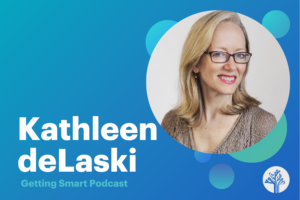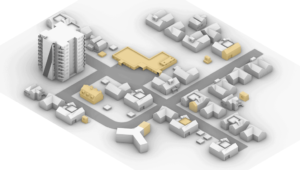Prioritization: Time Management Advice to Empower Your Success

Cary J. Green, PhD
Countless books have been written on prioritization and time management, yet my experience is that most people often spend time doing things that are not a high priority. You may think you are making progress simply because you are busy. Nothing could be further from the truth. In fact, busyness can keep you from accomplishing anything meaningful by giving you a false feeling of accomplishment while stealing your time. To reach your goals and achieve success, you must focus effort on your priorities, those things that are truly impactful and important to you.
Everything is Not Important
If you want to be successful, you must manage your time so that you achieve your goals. Managing your time means that you spend time on your priorities, and it also means that you do not waste time on non-priorities. You can begin to identify your priorities by answering the questions below. Keep your priorities as simple and clear as possible.
Following are some questions to help you determine your priorities:
- What are your values?
- What are your goals?
- What are your responsibilities?
- What is the impact of the activity?
Values are those things that truly are important to you. Values should guide your overall direction in life, and they provide foundational context for your goals and priorities. Goals are impactful results or accomplishments you want to achieve and should align with your values.
Your responsibilities also influence your priorities. A student has the responsibility to attend class, complete assignments, learn the class material, etc. An employee has the responsibility to go to work, work well with others, and be productive. Your responsibilities to your family can have a tremendous effect on your priorities. Finally, to be successful over the long haul, your priorities must be impactful and have lasting value.
As you focus on priorities, don’t lose sight of your priorities when bombarded with other people’s priorities. Someone may bring an issue to you seeking help; this issue may be a priority for him but not necessarily for you. By working on his priority, you lose time that could be spent on your priorities. Of course, your friendship with him may be a priority of yours, so his issue may merit your time. Please understand that I am not discouraging you from helping others; in fact, helping others should be a priority. However, don’t automatically place a higher priority on the requests of other people than on your own priorities. For example, if you have a major chemistry test in the morning but your roommate wants to tell you about his new motorcycle tonight, you would be wise to suggest to him that you talk about it tomorrow after your test. In other words, prioritize your need to study over his priority of talking about motorcycles.
Furthermore, understand that urgent issues, whether yours or someone else’s, are not necessarily important issues. Many people struggle to recognize the difference between urgency and importance. I have observed this lack of understanding several times in interviews when I ask potential employees this question: “If you have urgent activities and important activities competing for your time, which would you work on first?” Many people incorrectly answer that they would first work on the urgent activities. The point is that the enthusiasm often associated with urgency counterfeits itself as importance. Don’t be fooled: You should work on the most important things first, and remember that urgent issues are not necessarily important issues.
You are What You Do
Once you separate the important from the urgent, manage your time so you can focus effort on your priorities. Managing time is easier said than done. For several years, I taught an orientation class for college freshmen. I asked students to describe their biggest challenge. Without fail, year in and year out, the answer was the same: “I don’t have enough time.” Although it is true that you do not have time to do everything, you do have time to do what is truly important to you. Think of it like this: The least effective person you know has the same amount of time as does the most effective person you know. The difference, of course, is knowing how to manage your time, avoid distractions, and put maximum effort into your priorities. Effective time management will have a huge impact on your success.
If you spend time on non-priority activities, then obviously you have less time available for your priorities. Life is a series of choices. Choose wisely. Saying “no” to some activities is as important as is saying “yes,” perhaps even more so. A colleague of mine says, “When you say yes to something now, you are saying no to something else later.” To reiterate this point, when asked if I have had time to do something I have not done, I often reply by saying, “Yes, I had time. But I chose to spend my time on something else.”
How do you know if you are not managing your time effectively? Here are a few questions to consider:
- Do you often think you could have done better on a task or project if you would have had more time?
- Do you consistently miss deadlines?
- Do you consistently ask for extra time to get your work done?
- Do you have to pull “all-nighters” or rush at the last minute to get your work done?
If you answer “yes” to any of these questions, you likely could improve your time management skills.
The point of managing time to focus on priorities was driven home to me when I received feedback from my three-year-review committee while I was an assistant professor. The advice I got was to quit doing some of the things I was doing and put more effort into the aspects of my job that would get me promoted and tenured.
Their advice, which sounds like common sense now, did not immediately resonate with me. I was working very hard, and I thought everything I was doing was important. And in some ways, everything I was doing was important. However, some activities would not help me reach my goal. Thus, although I was very busy and was working on several activities that seemed “important,” I was not spending enough time on activities that would help me reach my goal. I was spending too much time serving on committees and not enough time on research. Were the committees important? Yes. But time spent on committee work was not a priority.. Remember, being busy (doing something) is not the same thing as being productive (doing something important).
The difference between busyness and productivity can be difficult to see. Spending time on otherwise worthwhile activities can also get in the way of your progress if those activities are not priorities. Please don’t miss this point: Not all “important” activities are equal, and “good” activities can get in the way of your true priorities.
A Simple Procedure
Below I provide a practical example of how I get organized, manage time, and stay focused on priorities. This approach may be helpful to you as well. When I start working on a project, I follow this procedure:
- Outline the steps that are needed
- Estimate the time required for each step
- Determine the deadline for each step
- Add each step to my calendar
- Stay focused on my plan to ensure I meet deadlines
Following is an example of an outline you could use to write a term paper for school or a report for your job. Assume a deadline of February 15.
| Step | Duration | Deadline |
| Outline the paper | 1 hr. | Jan-15 |
| Research your topic | 4 hr. | Jan-20 |
| Write first draft | 2 hr. | Jan-22 |
| Revise draft | 1 hr. | Jan-25 |
| Find someone to review your paper | — | Jan-26 |
| Conduct additional research, if needed | 2 hr. | Feb-3 |
| Write second draft | 2 hr. | Feb-6 |
| Send second draft to reviewer | — | Feb-6 |
| Write final draft | 1hr | Feb-12 |
| Submit | — | Feb-13 |
To begin, break down the project into steps. Estimate the time required to complete each step, and schedule your steps so you can finish your paper by the deadline. You might build in a one- or two-day cushion, in case you need some extra time. Add this information to your calendar. (If you don’t use a planning calendar, I suggest that you start using one.)
In this example, I estimate that outlining the paper will take an hour. The deadline is January 15. To complete this step, I block out an hour in my calendar to work on the outline, so I can finish it by the January 15 deadline. For example, I might set aside nine to ten a.m. on January 13 to work on the outline. I estimate that conducting research would take four hours. Thus, I block out two, two-hour time periods for my research. For example, I may block out from ten a.m. to noon on January 17, and from two p.m. to four p.m. on January 19. Similarly, I block out time for each of the remaining steps. Think of blocking out time for your steps as setting up a meeting with yourself to ensure you have time to complete each step on time and stay on track. Make these time blocks and activities a priority, and do not miss the “meetings” with yourself.
Because I like to have someone read through a draft of my paper, I need to find a reviewer. Sending a quick e-mail to a friend to ask her to review my paper does not merit setting aside a block of time; I simply e-mail her before January 26, ask her to review my paper, and give her a deadline for receiving her comments. Once I receive her comments, I can make the necessary changes and submit my paper on time.
If you stick with the plan you develop, you will get your paper or job application done on time. Although you need not always be this formal, mentally working through this exercise is quite valuable. The key points are to:
- Know what steps are needed to complete your project.
- Know the amount of time required to complete each step.
- Plan enough time to get the work done on time.
- Schedule specific time into your calendar to allow you to complete each step.
- Prioritize your time to get the work done according to your plan.
Let me end with time management advice I give to students: At the beginning of each semester, add to your calendar your class schedule, work schedule, student organization meetings, etc. for the entire semester. Then set aside time each week of the semester to complete your school work. You might block out six or eight two-hour blocks each week. This will ensure that you always have time available each week to complete your school work. At the beginning of the semester you may not know exactly what you will have to work on during the eleventh week of the semester, but you will know that you have time scheduled to do it.
Key Points on Prioritization and Time Management:
- Busyness can keep you from accomplishing anything meaningful.
- The least effective person you know has the same amount of time as does the most effective person you know.
- Focus your efforts on your priorities.
- Urgent issues, whether yours or someone else’s, are not necessarily priority issues.
- Not all important activities are equal, and “good” activities can get in the way of your true priorities.
- Know what steps are needed to complete your project, and then plan enough time to get the work done on time.
Adapted from Leadership and Soft Skills for Students: Empowered to Succeed in High School, College, and Beyond by Cary J. Green, PhD. Copyright 2015 by Cary J. Green. Published by Dog Ear Publishing. Used by permission. All rights reserved.
About “GenDIY”
eduInnovation and Getting Smart have partnered with The J.A. and Kathryn Albertson Family Foundation to produce a thought leadership campaign called Generation Do-It-Yourself (GenDIY)– how young people are hacking a pathway to a career they love – on The Huffington Post andGettingSmart.com. This campaign about reimagining secondary and postsecondary education and career skills will explore the new generation building a global economy and experiences that are impact driven and entrepreneurial. For more on GenDIY:
- Buck the Quo by Living Your Passion & Choosing Your Own Path
- Tell Your Story: Generation Do-It-Yourself Pathways for School & Career
- Getting Smart Podcast | GenDIY: Emerging Options for Students Navigating Life
Cary J. Green, PhD, has been an educator and mentor to young people for more than twenty years, and has held academic leadership positions for more than ten years. Follow Cary on Twitter, @LeadSoftSkills.
Stay in-the-know with all things EdTech and innovations in learning by signing up to receive the weekly Smart Update.






CATCO
Well worth a read. Got great insights and information from your blog. Thanks.